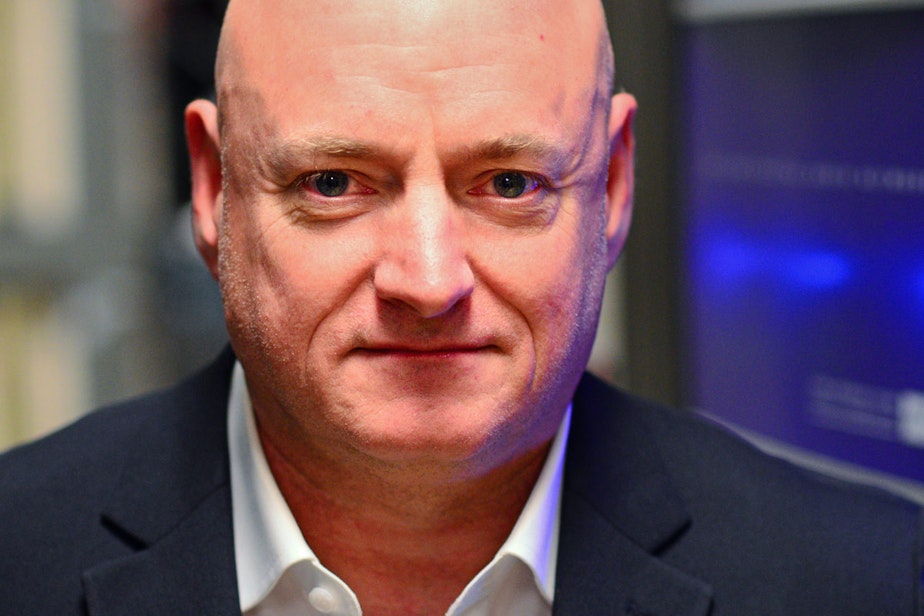5 things astronaut Scott Kelly wants you to know (and one thing he doesn't want to talk about)

Astronaut Scott Kelly has been in orbit longer than any other person in history: more than 500 days in total. During that time, he stockpiled lots of interesting information and experiences, some of which are included in his book, “Endurance: A Year in Space, a Lifetime of Discovery.”
Here are a few bits of insight Kelly shared with KUOW’s Bill Radke recently. (And one thing he really didn’t want to talk about.)
1. Space smells like burnt metal.
Well, not space exactly — more like the off-gassing of metal on the space station. “We joke that that’s the smell of space,” Kelly said. “It’s unmistakable.”
2. Astronauts aren’t really floating around in the International Space Station.
Because of Earth’s gravitational pull, they’re actually constantly falling. But since the space station is in orbit, it moves at just the right speed to avoid crashing back to the planet’s surface.
“What’s that like, to fall for a year?” Radke asked.
“It takes a little getting used to … it really mostly feels like you’re floating,” Kelly said.
But he said that when he was going to sleep on the space station, he could imagine he was falling around the planet. “I could let my mind feel that way for as long as I wanted.”
3. Pooping is different in space.
How different? We don’t know; Kelly wasn’t about to weigh in on that one.
“Pooping, harder to do?” Radke asked.
“What did you say?” Kelly said.
“Pooping.”
“I’m just shocked that you used that word in that way. It’s like you turned into an adolescent boy.”
Alright. Moving on.
4. Kelly aged in reverse while in space (on a molecular level).
Kelly has a twin brother who used to work for NASA, and he volunteered to act as a control so scientists could study how living in space impacts the human body. One surprising result came when they looked at Kelly’s telomeres, structures that exist at the end of chromosomes and tend to shorten as you age.
The hypothesis was that the stress of living in space would case those telomeres to shorten at a faster rate.
“The reality of it was, what we found was the opposite,” Kelly said. “They actually got better compared to his … Now, I don’t think this is going to be a fountain of youth. But it is an area we need to dig into.”
5. We’re capable of going to Mars. It’s just a matter of politics.
Part of the reason Kelly was in space for so long was to gather information about how a mission to Mars might impact astronauts physically. Kelly said he thinks we’re capable of going to Mars, but it will take a major investment in science.
He hopes that private ventures led by people like Jeff Bezos might work with NASA to help take space exploration to the next level.
If there’s one thing being on the International Space Station taught him, it’s this: “If we can do this, we can do anything if we put our minds to it.”
6. Space doesn’t just change you physically — there’s a mental shift, too.
Kelly said that looking at Earth from the space station made him feel more protective of the planet.
“It makes you, I think, more of an environmentalist,” he said. “You look at this beautiful place, and it makes you want to take care of it more. But then you also have this perspective on humanity … you see this planet with no political borders.”
Produced for the web by Amy Rolph.


